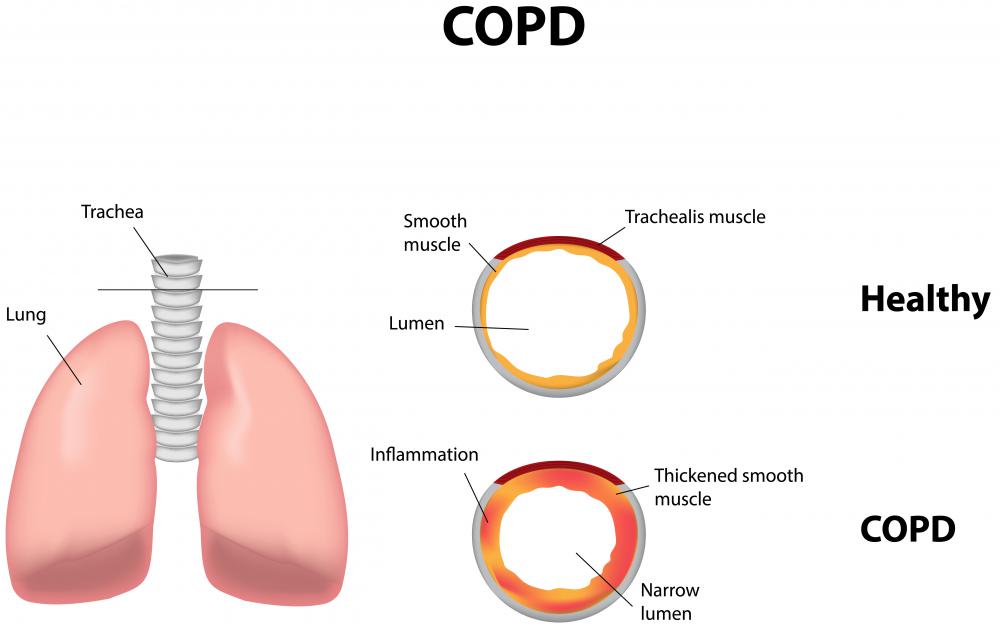At PracticalAdultInsights, we're committed to delivering accurate, trustworthy information. Our expert-authored content is rigorously fact-checked and sourced from credible authorities. Discover how we uphold the highest standards in providing you with reliable knowledge.
What are the Different Types of Physiology Jobs?
Physiology jobs can be found in a wide variety of healthcare settings including hospitals and rehab centers as well as research labs and medicals schools or universities. A physiologist is a highly trained allied health professional. Typically, physiologists have completed a Master’s or Doctorate degree program in physiology from an accredited school.
Physiology professionals require knowledge of the mechanisms of the internal body to maintain the survival and functioning of an individual. Physiology jobs can be specialized to include such things as cardiology, neurology, respiratory and exercise. Each specific career path requires specialized training in the area of interest.

Physiology jobs concentrate on the body functions related to the area of expertise. Typically a physiologist helps diagnose and treat specific ailments or injuries to assist the patient to regain physical independence. Depending on the career path, some physiology jobs, such as cardiac physiologists, require extensive knowledge of invasive procedures, such as pacemaker implantation or electrophysiology where a cardiac catheter is placed to measure the electrical impulses of the heart. Their job is to monitor and assess the heart and its function for problems or defects and to assist in the recovery of cardiac incidences.

Physiology jobs in neurology concentrate on the nervous system and commonly work with people with such disorders as dementia, epilepsy and strokes. The neurophysiologist performs procedures such as EEG’s, or electroencephalography to record electrical brain activity and EMG’s, or electromyography and NCS’s, or nerve conduction studies, to record and assess nerve and muscle function. They can also perform testing during surgical procedures to decrease the risk of complications such as paralysis.

Physiology jobs focused on the respiratory system help assess and monitor ailments and diseases which may impede breathing. They commonly work with patients suffering from things like COPD, or chronic obstructive pulmonary disease, emphysema, asthma and infant respiratory distress syndrome. Typically a respiratory physiologist will conduct lung functioning tests, sleep studies and blood gases analyses along with being involved in the treatment protocols to assist the patient in recovery of normal breathing patterns.

Physiology jobs in exercise or sports monitor and evaluate cardiovascular and physical abilities to regain health or physical conditioning. Typically the exercise physiologist implements exercise or fitness routines specific to the goals set for the individual patient. They, like any type of physiologist, work closely with a team of healthcare professionals to assure goals of physical abilities and health are being worked towards through a comprehensive therapeutic program.
AS FEATURED ON:
AS FEATURED ON:


















Discussion Comments
Because people are spending more time and money on improving their physical health and getting fit, there is a high demand for exercise physiology jobs.
Some possible career titles in exercise physiology include personal trainers, fitness instructors, sports psychologists, and sports and fitness nutritionists.
Undergraduate and graduate coursework might include Anatomy, Nutrition, Kinesiology, Pharmacology, and Abnormal Psychology. Depending on one's educational background, specific training, and hands-on experience, exercise physiologists can make up to $77,000 a year on average.
What classes would I have to take to major in Exercise Physiology? Also, how much could someone earn each year with a degree in this field?
Post your comments